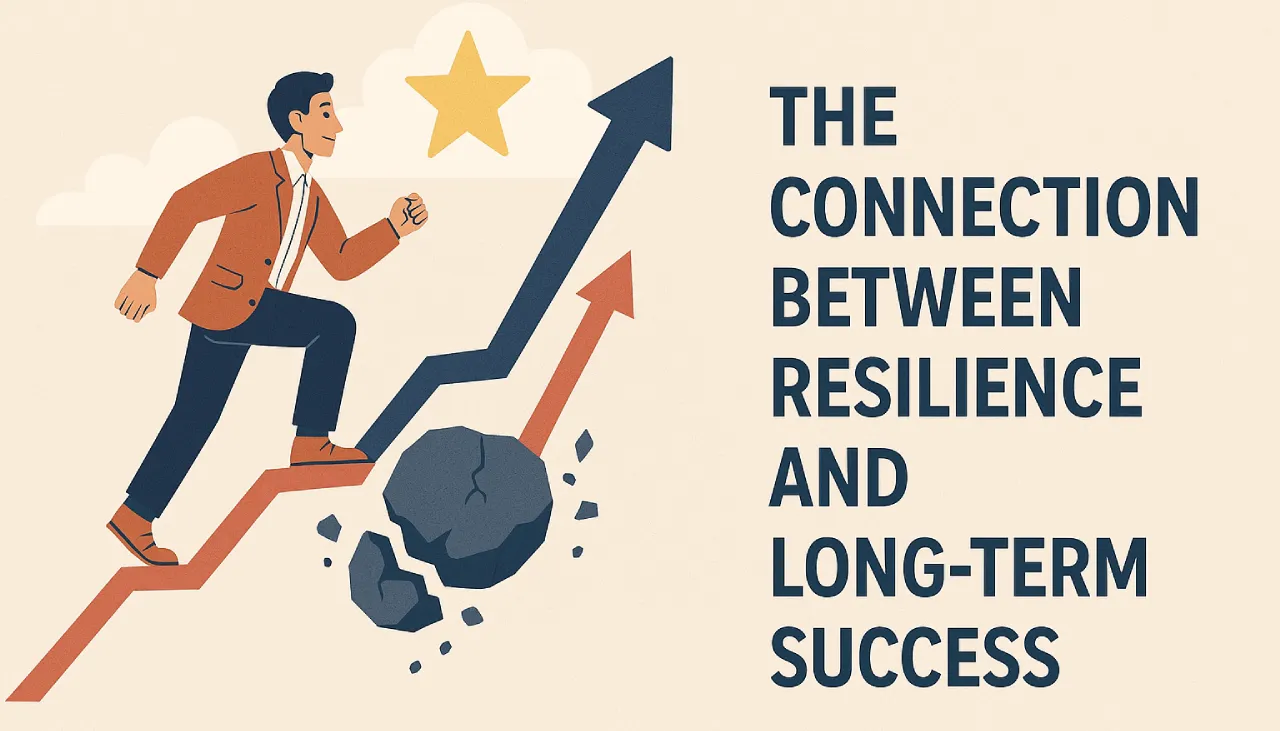When faced with high-pressure situations—whether it’s an important presentation, a tight deadline, or a personal challenge—mental toughness determines whether you stay focused or break under stress.
Mental toughness isn’t just about enduring hardship; it’s about training your brain to stay calm, focused, and resilient in difficult situations. By understanding how your brain responds to pressure and applying science-backed techniques, you can strengthen your mental toughness and maintain peak performance even in the most demanding moments.
In this article, you’ll learn how neuroscience can help you develop mental toughness and strategies to stay focused under pressure.
1. What is Mental Toughness?
Mental toughness is the ability to control your emotions, focus your mind, and persist despite obstacles. It’s a combination of emotional resilience, cognitive control, and stress management, allowing you to perform at your best under pressure.
Key Traits of Mentally Tough Individuals
| Trait | Description | Example |
|---|---|---|
| Emotional Regulation | Staying calm and composed under stress | A surgeon performing under high-pressure conditions |
| Cognitive Flexibility | Adapting to unexpected challenges | A CEO making quick decisions during a crisis |
| Resilience | Bouncing back after failures | An athlete recovering from a loss and training harder |
| Focus and Self-Control | Ignoring distractions and maintaining performance | A student staying focused during an exam |
📌 Example: Navy SEALs undergo intense mental training to control their stress response, allowing them to make rational decisions in life-threatening situations.
2. How the Brain Responds to Pressure
When under pressure, your brain activates the sympathetic nervous system (SNS), triggering the fight-or-flight response. This leads to:
- Increased heart rate – Preparing the body for action
- Heightened alertness – Focusing attention on perceived threats
- Reduced logical thinking – The amygdala (emotional brain) takes control, reducing rational decision-making
To stay mentally tough, you need to train your brain to override the amygdala’s fear response and strengthen the prefrontal cortex, which controls focus, discipline, and problem-solving.
📌 Example: Research shows that elite athletes and high-performing professionals activate their prefrontal cortex under pressure, allowing them to remain calm and execute tasks efficiently.
3. How to Train Your Brain for Mental Toughness
✅ a) Reframe Stress as a Challenge, Not a Threat
Your brain’s perception of stress determines how you respond to it. Seeing stress as a challenge instead of a danger increases performance.
🔹 Shift from “I have to” → “I get to” (I have to give a speech → I get to share my ideas).
🔹 Use positive self-talk (“This is an opportunity to grow, not a test of failure.”).
🔹 Visualize success before high-pressure moments.
📌 Example: Studies show that reframing stress as excitement improves performance in public speaking and sports.
✅ b) Train Your Focus with Cognitive Endurance Exercises
Your ability to stay focused under pressure depends on your brain’s endurance. Training focus helps strengthen neural connections, improving concentration during high-stress situations.
🔹 Practice deep work – Work in distraction-free blocks (Pomodoro technique).
🔹 Use visualization – Picture yourself handling pressure with ease.
🔹 Increase cognitive load gradually – Challenge yourself with difficult tasks in a controlled setting.
📌 Example: Chess grandmasters train their focus by practicing complex strategies under time constraints, sharpening their cognitive endurance.
✅ c) Use Controlled Exposure to Pressure (Stress Inoculation)
Gradually exposing yourself to stressful but manageable situations trains your brain to handle pressure more effectively.
🔹 Simulate high-stakes situations (practice public speaking with an audience).
🔹 Use progressive overload (increase difficulty in training gradually).
🔹 Engage in controlled discomfort (cold showers, fasting, endurance training).
📌 Example: Pilots undergo flight simulators with emergencies to build mental resilience before facing real-life pressure.
✅ d) Strengthen Emotional Regulation with Breathwork
Breathing exercises activate the parasympathetic nervous system (PNS), reducing stress and improving cognitive function under pressure.
🔹 Box Breathing – Inhale for 4 seconds → Hold for 4 seconds → Exhale for 4 seconds → Hold for 4 seconds.
🔹 Physiological Sigh – Inhale deeply, take a second quick inhale, then exhale slowly.
🔹 4-7-8 Breathing – Inhale for 4 seconds, hold for 7, exhale for 8.
📌 Example: Navy SEALs use box breathing to stay calm and focused in combat situations.
✅ e) Develop a Pre-Performance Routine to Reduce Anxiety
Pre-performance routines train your brain to enter a focused state quickly. These routines condition your mind to handle pressure effortlessly.
🔹 Establish rituals before high-stakes tasks (e.g., listen to music, review key points, do breathing exercises).
🔹 Use power poses – Expanding your posture increases confidence and reduces cortisol levels.
🔹 Repeat affirmations – “I am prepared. I am focused. I will execute well.”
📌 Example: Olympic athletes have specific warm-up routines before competition to reduce stress and enhance performance.
4. Building Long-Term Mental Toughness
✅ a) Develop Self-Discipline Through Micro-Challenges
Mental toughness grows when you intentionally challenge yourself daily.
🔹 Cold Exposure – Builds resilience to discomfort.
🔹 Delayed Gratification – Train yourself to resist immediate pleasure for long-term benefits.
🔹 Difficult Conversations – Practicing uncomfortable discussions improves emotional control.
📌 Example: The Marshmallow Test found that children who delayed gratification were more successful later in life due to stronger self-discipline.
✅ b) Cultivate a Growth Mindset
Your mindset about failure determines how well you handle setbacks.
🔹 See failure as feedback, not defeat.
🔹 Adopt “yet” thinking (“I haven’t mastered this yet, but I will.”).
🔹 Celebrate small progress to reinforce resilience.
📌 Example: Michael Jordan was cut from his high school basketball team, but his growth mindset led him to become one of the greatest players of all time.
✅ c) Strengthen Recovery to Maintain Peak Focus
Mental toughness isn’t just about pushing harder—it’s also about recovering effectively to sustain performance.
🔹 Prioritize Sleep – Poor sleep weakens cognitive control under stress.
🔹 Use Active Recovery – Engage in activities that reset your mind (meditation, walking, journaling).
🔹 Take Strategic Breaks – Short mental resets prevent burnout and increase resilience.
📌 Example: Research shows that elite performers incorporate deliberate rest to sustain long-term success.
Final Thought: Train Your Brain to Stay Focused Under Pressure
Mental toughness isn’t just a trait—it’s a trainable skill. By applying neuroscience-based strategies, you can stay calm, focused, and effective under high-pressure situations.
✅ Reframe stress as a challenge to improve performance
✅ Use breathwork, visualization, and pre-performance routines to stay focused
✅ Build resilience through controlled exposure to pressure and recovery techniques
Start today: Choose one mental toughness strategy and apply it in your daily routine to strengthen your ability to stay focused under pressure! 🚀












Leave a Reply